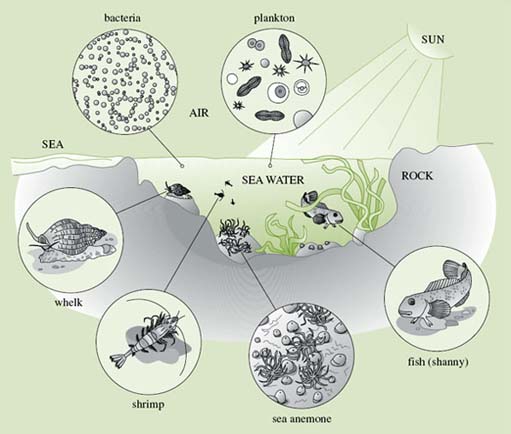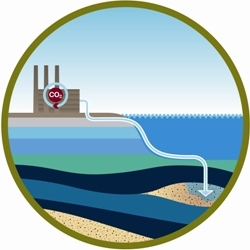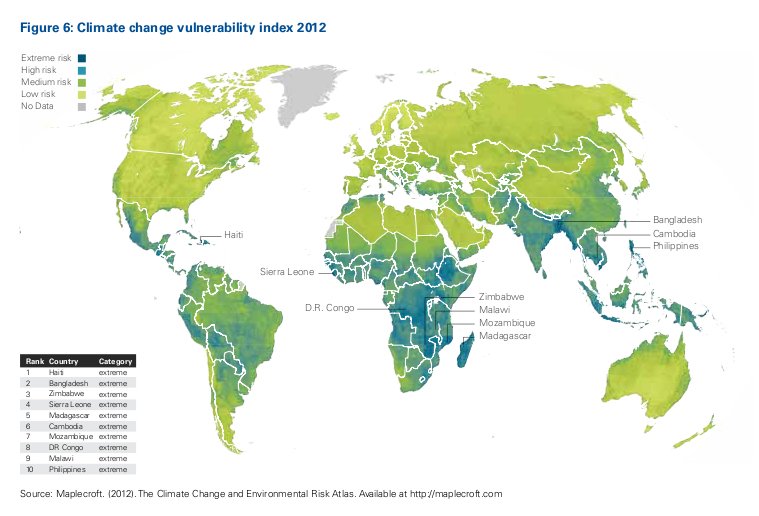Some people who tested the website early on said that a glossary would be useful. So here it is. Entries are in alphabetical order. I add to it from time to time, and you’re welcome to add any entries (or questions) in the comment box or via the contact form.
Agro-ecology
Agro-ecology applies ecological principles to the design and operation of sustainable food systems – from farm to fork, including any (hopefully minimal) waste recycling. Because of this whole-system approach, it links together ecology, culture, economics and society. For more info, see the Agroecology website and the Sustainable Farming website Also, see the permaculture entry in this glossary.
An Appropriate Assessment is an environmental impact assessment that Natural England has a legal duty to carry out before it can approve operations on a protected Natura 2000 site (Special Protection Area or Special Area of Conservation), that are not necessary for the conservation of the site. The Appropriate Assessment has to show scientific evidence that the proposed operations will not damage the integrity of the protected site.
Biochar is essentially fine-grained charcoal added to soils. Advocates claim that adding biochar to soils will store carbon safely away from the atmosphere for hundreds or even thousands of years. Unlike traditional charcoal, biochar is produced in a process of pyrolysis (heating) which also creates biogas and bio-oil as well as a lot of heat. Scientific trials have so far failed to vindicate claims for biochar’s carbon storage capabilities. For more info, see Biofuelwatch’s Biochar Briefing
Biofuel is a type of fuel derived from plant or animal waste material, such as bioethanol made from sugar cane fibres.
Biomass is a term for all plant and dead animal material, including waste.
Brokerage service for renewable energy
A renewable energy broker connects energy customers with renewable energy suppliers. They negotiate with the suppliers on behalf of their clients, to provide the energy customers with the most cost-effective renewable energy. Calderdale Community Energy aims to offer a renewable energy brokerage service.
Carbon Capture & Storage
CCS technology aims to capture carbon dioxide that is emitted from fossil fuel power stations. The technology is not yet developed and has only been tried out on a small scale. The UK government has launched a CCS development fund to invest in trial schemes to see if the technology will work on a big scale.
The plan is basically to install some means of capturing the carbon emissions from gas- and coal-burning power stations. And to build pipelines that will transport that CO₂ to safe storage offshore, in deep underground structures in the sea bed such as depleted oil and gas reservoirs, and deep saline aquifers.
Carbon Markets
Decisionist policy-making
Decisionist policy making follows this process:
- politicians set political goals,
- scientists inform politicians about relevant facts,
- politicians make laws/regulatory decisions based on the scientists’ advice and evidence.
Ecology and ecosystems definitions (below) are from a free online Open University course.
Ecology is the scientific study of the interrelationships between living organisms and the environment they live in.
An ecosystem (from ‘ecological system’) is a collection of living beings and the environment they live in. The size and boundaries of an ecosystem are determined by what we want to know. So an ecosystem can be large (a rainforest) or small (a pond) – and large ecosystems can often be broken down into smaller ones. The important thing is that ecosystems are produced by living organisms interacting with each other and the physical environment. All ecosystems involve:
- living organisms
- a physical environment (land, water, air)
- a source of energy to make the whole thing work
For almost all the Earth’s ecosystems, the ultimate source of energy is sunlight.
Human beings are part of ecosystems, as well as manipulators of ecosystems. So we are dependent on ecosystems, as well as responsible for the ecological health of the ecosystems we inhabit.
Ecological health is a combination of many different things: the diversity, numbers and condition of the living beings in an ecosystem; the complexity of the food webs; and the quality of the soil, air and water that make up the physical environment. We are the most powerful actors in most ecosystems but until fairly recently we have been mostly unaware of the ecological consequences of our actions. But now it’s becoming clear that we have a big impact on ecological health, in terms of pollution, climate change and the use of finite biological and physical resources.
Ecosystem services Ecosystems create many resources and processes which benefit humanity. The 2004 United Nations Millenium Ecosystem Assessment defined these benefits as ecosystem services, and divided them into four categories:
- provisioning services, such as providing food, water, naturally occurring pharmaceuticals, and energy such as hydropower and biomass fuels
- regulating services, such as control of climate and pest and disease control
- supporting services, such as crop pollination and nutrient cycles
- cultural services, such as spiritual and recreational enjoyment
Environmental justice looks for ways to solve both social and environmental injustice, which often go together – people living in poor neighbourhoods often suffer disproportionately from environmental “bads” like pollution and flooding, and don’t have access to environmental “goods”, like green, open spaces and fresh air.
This is true internationally, too. The poorest countries are most at risk of damage from climate change – like flooding, water shortages, food shortages, excessive heat.
There is an emerging environmental justice toolkit for people and organisations to use. The Ella Baker Human Rights Centre in Oakland, California is doing groundbreaking work, striving to create environmental justice and greencollar jobs as well as aiming for fair policing and good schools. The Centre looks at how social and environmental policies and projects inter-react and affect different groups of people, and campaigns to make sure everyone has fair access to social and environmental benefits, and that social and environmental bads aren’t dumped on people and neighbourhoods least able to resist and deal with them.
Environmental justice includes making sure that the so-called green economy benefits working people, increases employment in low income areas and provides decent, plentiful green collar jobs – rather than primarily being about puffing up the profits of big corporations and banks.
“Food sovereignty is the right of peoples to healthy and culturally appropriate food produced through ecologically sound and sustainable methods, and their right to define their own food and agriculture systems. It puts the aspirations and needs of those who produce, distribute and consume food at the heart of food systems and policies rather than the demands of markets and corporations.” Hebden Bridge writer Geoff Tansey’s website has more information about food sovereignty.
Agenda 21 was one of the documents produced by the 1992 Rio de Janeiro UN Sustainable Development Conference on the Environment and Development, (aka the Rio Earth Summit). Agenda 21 aimed to provide the basis for “a new global partnership…inspired by the need to achieve a more efficient and equitable world economy.”
Agenda 21 included directions for local authorities to enter into a dialogue with its citizens, local organizations and private enterprises and adopt a local Agenda 21. “Through consultation and consensus-building, local authorities would acquire the information needed for formulating the best strategies. The process of consultation would increase household awareness of sustainable development issues…An important goal would be to support, extend and improve existing institutions working in the field of ….local environment management.”
In Calderdale, the Local Agenda 21 body is Calderdale Sustainability Forum Ltd, a company self- described as:
“a ‘virtual’ organisation, having no permanent employees or premises. …it delivers its output by working with freelancers…; and also with a range of partners. The CSF chair and ‘manager’ is Anthony Rae, and it has its own company board.”
Local Agenda 21 bodies in other areas include Sustainable Dorset and Hammersmith and Fulham Local Agenda 21 Forum
Neoliberalism
Neoliberalism justifies de-regulation of economic activity, so that national governments no longer legislate like they used to for responsible corporate behaviour. It is an economic/political ideology that restructures social, economic and general power relations in favour of corporate profit, and away from wages and wage earners. The neoliberal doctrine promotes the ideology that the “free” market is a stable system that makes sure that all resources – labour, natural resources, financial and physical capital- are fully employed. But in fact neoliberalism depends on an authoritarian state to protect the operations of the “free” market.
Neoliberal policies have been carried out in pretty much all societies in the world over the last 30 years – via national governments and key international organisations, including:
- the EU Commission
- the World Bank and the International Monetary Fund
- various United Nations bodies including the UN Environmental Programme
- the Masters of the Universe association known as the World Economic Forum
Neoliberalism began to take political effect in the mid 1950s, with the creation of the Institute of Economic Affairs think tank in London. This was during the first post-World War 2 crisis in the oil/currency system. Britain lost control of the Anglo-Iranian oilfields and the value of the British pound took a nose dive.
Neoliberalism also aims to transform the relationship between society and nature, bringing more and more of the natural environment into the money economy and seeing it as a source of corporate profit- for instance, ecosystem services.
Friends of the Earth International defines itself as an environmental and economic justice campaigning organisation that resists neoliberalism and challenges the influence of big corporations.
Permaculture
Nick Green, director of Incredible Farm, Walsden (also on the IncredibleEdible Mytholm management committee) explains permaculture like this:
Permaculture is a group of methods and tools to help us work out ways to produce food without wrecking the land.
Mostly it’s good old fashioned common sense, for example rather than trying to eliminate all insects with chemical sprays we encourage a complete and intact ecosystem, so that whenever some critter starts eating our crops a bigger critter gobbles it. That way, we never get plagues of one particular pest.
Another example: rather than taming, draining and changing the land we start by observing what’s there, how it works, the weather, the flood points, the good and bad soils – and then adapt our design to fit. For example on the Browns site we will have ponds, where ponds want to form naturally. This avoids a costly and un- winnable fight with nature.
And say If we found wild raspberries on the site we might take nature’s hint and use that area to grow related plants…
and so it goes!
Renewables Obligation
The Renewables Obligation (RO) requires licensed UK electricity suppliers to source a specified and annually increasing proportion of electricity they supply to customers from eligible renewable sources, or pay a penalty.
The way the RO works is that Ofgem issues Renewables Obligation Certificates (ROCs) to renewable electricity generators for every megawatt hour (MWh) of eligible renewable electricity they generate. Generators sell their ROCs to suppliers or traders. This allows them to receive a premium in addition to the wholesale electricity price.
Suppliers present the ROCs to Ofgem to demonstrate their compliance with the obligation. Where they do not present sufficient ROCs, suppliers have to pay a penalty known as the buy-out price. The money collected by Ofgem in the buy-out fund is recycled on a pro-rata basis to suppliers who presented ROCs.
The price of ROCs depends on what banding level the type of renewable energy generation falls within. The types of renewables that the government most wants to support receive the highest price for their ROCs.
The Coalition government is carrying out a banding review to determine which renewable technologies fall into the various bands, and what their ROC prices will be.
Site designation means protecting areas of land for conservation reasons. Sites can be designated as Sites of Special Scientific Interest, or as Special Areas of Conservation (SACs) or Special Protection Areas (SPAs). SACs and SPAs are protected under the European Habitats Directive and Birds Directive respectively. SPAs and SACs are also called European-designated sites, or Natura 2000 sites.
Stakeholder
Stakeholder is a word that escaped from corporate management-speak into New Labour politics, and now prowls around confusing people. Websters 9th New Collegiate Dictionary definition is: A person entrusted with the stakes of bettors. (1708) And “stake” has various definitions, including: an interest or share in an undertaking (as a commercial venture).
So it’s a word from the worlds of gamblers and businesses. I don’t intend to use it, since I prefer words that refer specifically to people’s roles – citizen, voter, customer, investor, manager, Councillor, whatever. That way it’s clearer what different interests are in play – rather than lumping everyone together under one definition, that serves to conceal real differences and conflicts.
Technocratic policy-making
Technocratic policy making starts from established scientific facts. Politicians and officials develop policy and regulations based on these facts.
EnergyRoyd by Jenny Shepherd is licensed under a Creative Commons Attribution-NonCommercial-ShareAlike 3.0 Unported License.
Please attribute any work you share from this page as “Shared from EnergyRoyd website,” with this live link.


